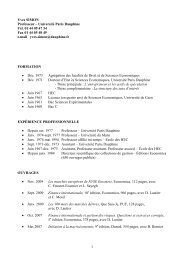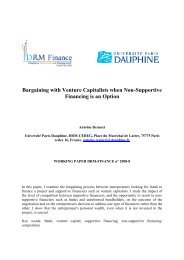Corporate governance and earnings management ... - CEREG
Corporate governance and earnings management ... - CEREG
Corporate governance and earnings management ... - CEREG
Create successful ePaper yourself
Turn your PDF publications into a flip-book with our unique Google optimized e-Paper software.
principally leaning on the fact that the article 255,4.3 allows for a dynamic treatment (in that<br />
sense Söffing, 1988, p. 598). Indeed, since 1956 (<strong>and</strong> even since 1931, according to several<br />
authors), legal decisions from the BFH had not made of the salability of a good a necessary<br />
condition to its capitalization but the BFH still required the objective separate valuation<br />
(Söffing, 1988, p. 598-599; Moxter, 1993, p. 855; Hommel, 1997, p. 354-361), what Moxter<br />
considered to be a fundamental barrier to the evolution towards the full recognition as an asset<br />
(Moxter, 1993, p. 861; Moxter, 1998, p. 478).<br />
At this stage of the reasoning, we should conclude that, although, from the point of views<br />
of regulation, there is a break-through of the dynamic solution, which constitutes an<br />
undeniable novelty in the German context, the basic solution, ascertained by the dominating<br />
doctrine, remains that one of the classic static conception. This view can be strengthened by<br />
the opinion of those who think, on the basis of legal sources, that the introduction of the<br />
dynamic solution is only due to tax motivations: to permit to the companies to opt for the new<br />
regulation for the amortization of goodwill in 15 years as decided by the tax legislator in 1985<br />
(Söffing, 1988, p. 606-607). But this view must be confronted to the solutions provided for in<br />
matter of consolidated accounts.<br />
b) The case of consolidated financial statements<br />
The treatment of goodwill in consolidated accounts is codified by the article 309-1 of the<br />
Code of Commerce. This article shows two fundamental oddities in comparison with its<br />
equivalent for the individual accounts.<br />
The first novelty, which obligatorily derives from the European text, is that, as a matter of<br />
principle, the goodwill must be (<strong>and</strong> not may be) capitalized (article 309-1, alinea 1). At first<br />
sight one could think that this difference of writing presages a different treatment from the<br />
one applied to individual accounts. But a second oddity must be taken in account.<br />
The latter lies in the fact that the German legislator has used the flexibility of the article 30<br />
§2 of the seventh directive which permits to the States to authorize the companies to write off<br />
35



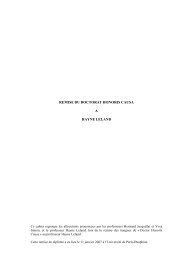
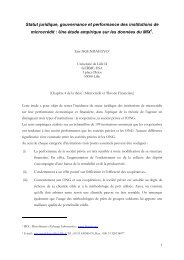
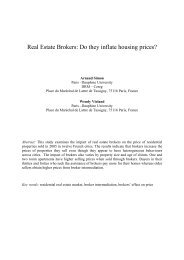
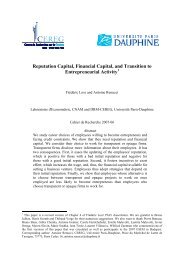
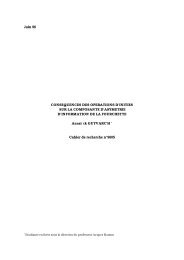
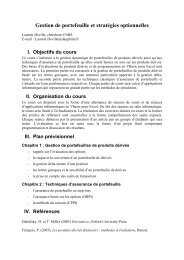
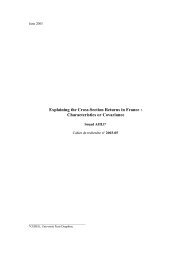
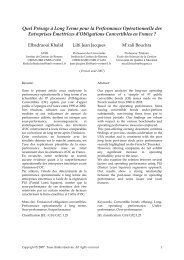

![& 6 ] ^ F ]^ - CEREG - Université Paris-Dauphine](https://img.yumpu.com/33326502/1/184x260/-6-f-cereg-universitac-paris-dauphine.jpg?quality=85)

